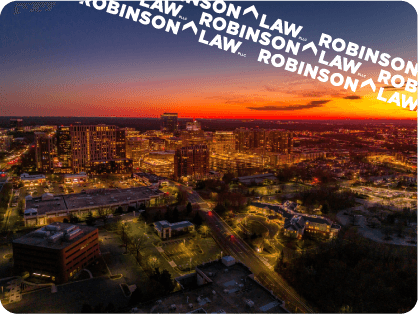Court Discusses Custodial Interrogation in Recent Virginia Firearm Case | Robinson Law, PLLC
Recently, the state supreme court issued an opinion in a case involving a man who allegedly fired a gun while celebrating the 4th of July. The case required the court to determine if the defendant’s statements to a detective were taken in violation of his constitutional rights. Ultimately, the court dodged the question at issue, finding that even if the lower court’s ruling was incorrect, any error stemming from the decision was harmless.
The Facts of the Case
According to the court’s opinion, police received a call reporting gunshots on the 4th of July. Upon responding to the scene, officers spoke with two witnesses. One of the witnesses provided the officers with time-stamped video surveillance footage showing a man carrying a small black object in his hand.
Based on the footage, officers arrested the defendant and took him down to the station for questioning. While there, the defendant asked a detective, “Hey, can you call my wife to tell her to call my lawyer for me?” The detective indicated he would call the defendant’s wife. However, before he did, another detective came into the room and read the defendant his Miranda warnings.
The defendant waived his rights and told the detective that it was him in the video. However, before trial, the defendant sought suppression of his statement. He argued that by asking the detective to call his wife, he invoked his constitutional right to counsel, and any statement taken before providing the defendant with an attorney was inadmissible at trial.
The court denied the motion to suppress. At trial, the defendant’s attorney admitted that the man in the video was him and focused on created doubt as to whether the item in his hand was actually a gun. The jury, however, found the defendant guilty.
The defendant appealed, again arguing that his statement should have been suppressed. However, rather than reviewing the defendant’s claim, the court determined that even if it was admitted in error, the defendant was not prejudiced as a result. The court explained that the video was clear, and the jury could easily identify the person in the video as the defendant. The court reasoned that, regardless of the admission of the statement, the defendant admitted it was him at trial.
The court’s opinion highlights the importance of a well-throughout trial strategy to avoid this exact scenario. Had the defendant not admitted that it was him in the video, the outcome of this appeal may have been different.
Have You Been Arrested After Giving a Statement?
If you’ve recently been arrested and charged with a crime after providing a statement to police or detectives, that statement may be suppressible. At Robinson Law, our dedicated team of criminal defense lawyers handles all types of serious cases, including Virginia gun crimes, drug offenses, allegations of domestic violence, and more. We command an in-depth understanding of state and federal constitutional law that we put to use in each of our clients’ cases. To learn more and to schedule a free consultation, give us a call today at 703-542-3616.












